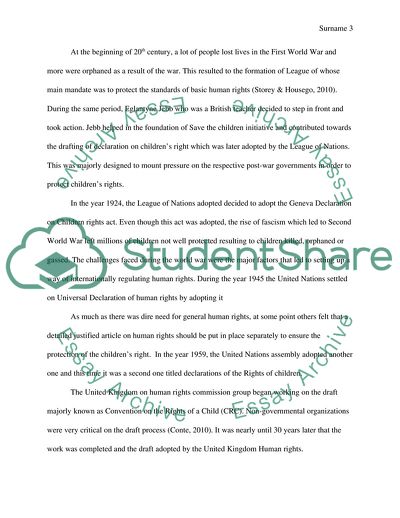Cite this document
(Children's Rights in the Early Years Essay Example | Topics and Well Written Essays - 2000 words, n.d.)
Children's Rights in the Early Years Essay Example | Topics and Well Written Essays - 2000 words. https://studentshare.org/law/1817086-critically-discuss-the-issues-and-debates-relating-to-childrens-rights-in-the-early-years
Children's Rights in the Early Years Essay Example | Topics and Well Written Essays - 2000 words. https://studentshare.org/law/1817086-critically-discuss-the-issues-and-debates-relating-to-childrens-rights-in-the-early-years
(Children'S Rights in the Early Years Essay Example | Topics and Well Written Essays - 2000 Words)
Children'S Rights in the Early Years Essay Example | Topics and Well Written Essays - 2000 Words. https://studentshare.org/law/1817086-critically-discuss-the-issues-and-debates-relating-to-childrens-rights-in-the-early-years.
Children'S Rights in the Early Years Essay Example | Topics and Well Written Essays - 2000 Words. https://studentshare.org/law/1817086-critically-discuss-the-issues-and-debates-relating-to-childrens-rights-in-the-early-years.
“Children'S Rights in the Early Years Essay Example | Topics and Well Written Essays - 2000 Words”. https://studentshare.org/law/1817086-critically-discuss-the-issues-and-debates-relating-to-childrens-rights-in-the-early-years.


